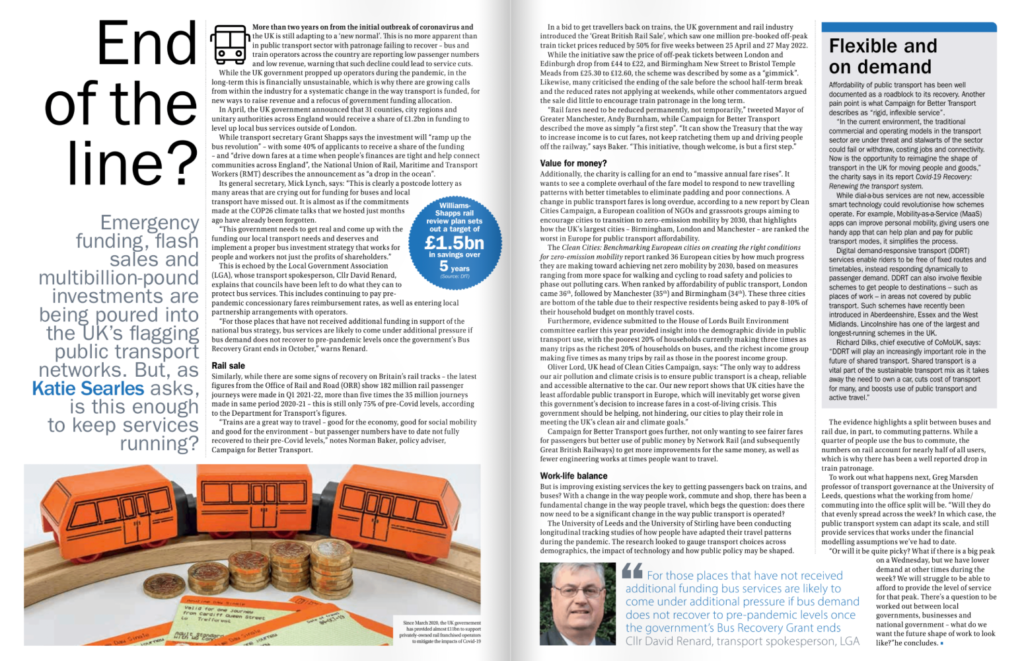Public transport funding cannot return to pre-pandemic ways of working, according to the Institution of Civil Engineers (ICE).
As part of ICE’s Next Steps programme, a panel debate discussed how to recover the public transport networks which have suffered during Covid-19.
“Reverting to pre-Covid models is not possible but cuts would roll back years of progress,” said Jagoda Egeland, advisor to the secretary-general of the International Transport Forum. “We need to adopt more sustainable funding models linked to sustainable urban development.”
The panel, which included former transport minister Stephen Hammond, said that public transport providers must understand the changes in demand and what currently drives people to use this service.
Providers must then rebalance timetables, service provision and price accordingly so that the service is affordable and reliable.
Operators have relied on emergency funding and subsidies from governments to adapt to changes in demand. As priorities shift, a more sustainable funding model for public transport needs to be identified and implemented, ICE stated.
“Public transport systems are enablers of social and environmental cohesion. It’s not a question of whether support should continue but more the structure of how that support should happen,” added Jonathan Spruce, ICE trustee for policy and external affairs.
ICE warned without a way to sustainably fund public transport, other long-term challenges become increasingly difficult to tackle.
These include:
- Being fit for purpose amid changes to how people work,
- Decarbonising transport and help reach net zero,
- Boosting green economic growth,
- Addressing inadequate connectivity in rural communities, and
- Over-relying on farebox revenue
The institution called for a new funding frameworks to be put in place. It recommended new policies including congestion or road charging; workplace levies; land value capture and transport networks with more active travel provision and shared transport options.The panellists also noted that long-term devolved funding and powers can be a solution to the challenge.
Local transport operators better understand what their communities need, ICE said. Therefore, devolved revenue could help to directly improve these services. By setting a clear vision of what the networks should do, locally and nationally, it will be easier to identify how to best provide, fund, deliver, operate and maintain them.
ICE concluded that the problem mustn’t be treated with short-term measures – there needs to be a strategy to fix it for the long-term.






